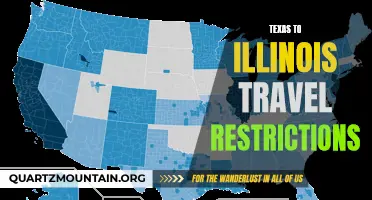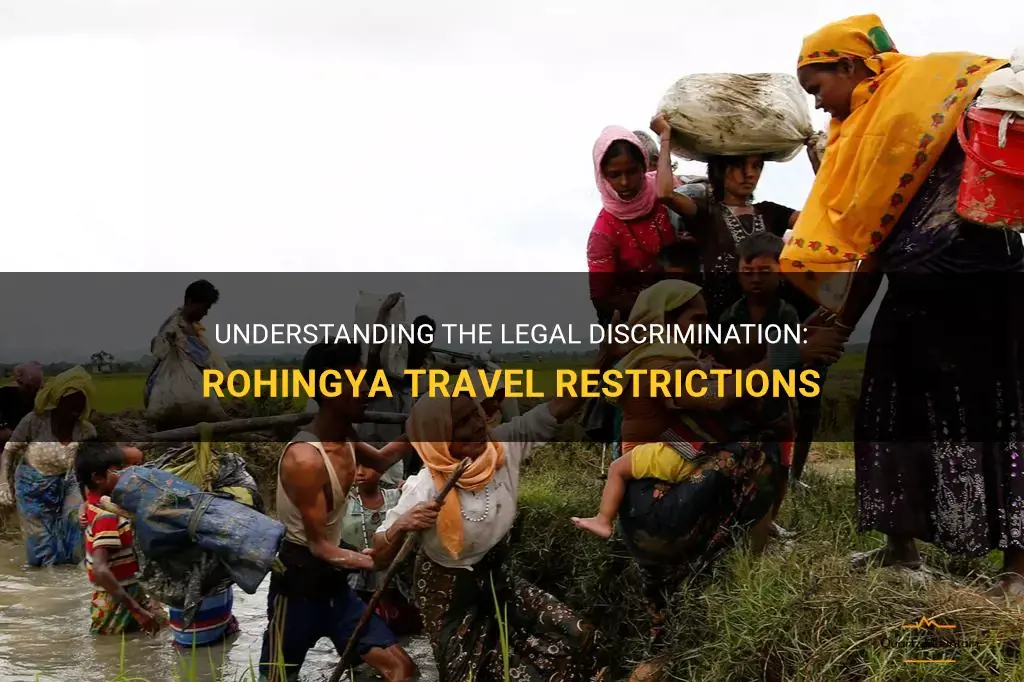
Legal discrimination and travel restrictions against the Rohingya population have been a cause for concern on the international stage. In countries like Myanmar, these restrictions have deeply affected the lives and freedom of movement of the Rohingya people, exacerbating their already dire situation. This form of discrimination not only infringes upon their basic human rights but also perpetuates a cycle of marginalization and exclusion. Understanding the implications of such legal measures is crucial in addressing the longstanding plight of the Rohingya community and working towards a more inclusive and equitable society.
| Characteristics | Values |
|---|---|
| Discriminated group | Rohingya |
| Type of discrimination | Travel restrictions |
| Basis for discrimination | Ethnicity |
| Government implementing restrictions | Myanmar government |
| Purpose of travel restrictions | Limiting movement and opportunities for Rohingyas |
| Impact on Rohingyas | Limited access to education, healthcare, work opportunities, etc |
| Duration of travel restrictions | Ongoing |
| International response | Condemnation and calls for lifting restrictions |
What You'll Learn
- What are the specific travel restrictions placed on the Rohingya ethnic minority in Myanmar?
- Are these travel restrictions a form of legal discrimination against the Rohingya?
- How do these travel restrictions impact the daily lives and freedoms of the Rohingya community?
- Has the international community taken any action against these travel restrictions?
- What possible justifications do the Myanmar government provide for the imposition of travel restrictions on the Rohingya?

What are the specific travel restrictions placed on the Rohingya ethnic minority in Myanmar?
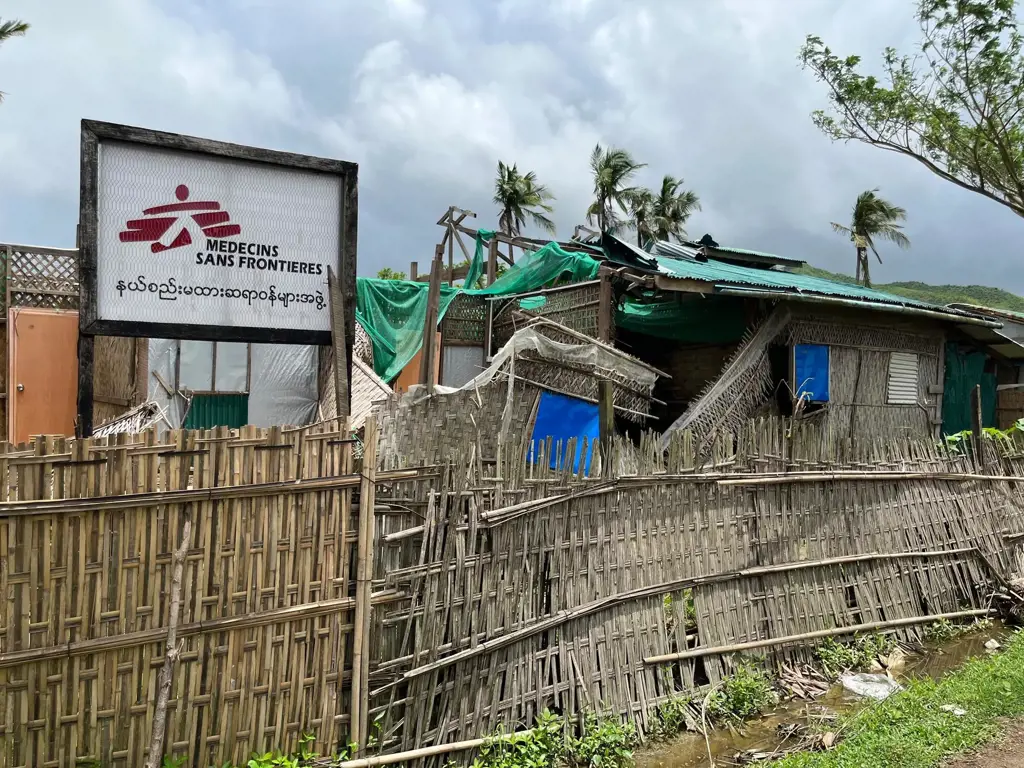
The Rohingya ethnic minority in Myanmar has been subjected to numerous travel restrictions, which severely limit their ability to move freely within the country. These restrictions are part of a larger pattern of discrimination and persecution against the Rohingya people.
One of the main travel restrictions placed on the Rohingya is the requirement to obtain permission from authorities in order to travel to other parts of the country. This permission, known as a travel pass, is extremely difficult to obtain and is often denied without reason. As a result, many Rohingya are effectively trapped in their own villages or townships, unable to travel to other areas for work, education, or healthcare.
In addition to the travel pass requirement, the Rohingya face a number of other restrictions that further restrict their freedom of movement. For example, they are required to obtain permission to marry outside of their village or township, which can be extremely difficult to obtain. This restriction not only limits their ability to form relationships with people outside of their community but also reinforces their isolation and exclusion from mainstream society.
Another travel restriction placed on the Rohingya is the requirement to obtain permission from authorities in order to leave the country. This restriction effectively denies the Rohingya the right to seek asylum in other countries, trapping them in Myanmar and leaving them vulnerable to further persecution.
The travel restrictions placed on the Rohingya have had a devastating impact on their lives. They are effectively segregated from the rest of Myanmar society, unable to access essential services such as healthcare and education. This has resulted in high rates of poverty and illiteracy among the Rohingya community.
The travel restrictions also make it extremely difficult for Rohingya to flee the violence and persecution they face in Myanmar. Without the ability to freely leave the country, they are left trapped in dangerous and volatile situations, with little hope for a better future.
The international community has condemned the travel restrictions placed on the Rohingya and called for their immediate removal. Organizations such as the United Nations and Amnesty International have documented the human rights abuses faced by the Rohingya and have called on the Myanmar government to end the discrimination and persecution against them.
In conclusion, the travel restrictions placed on the Rohingya in Myanmar severely limit their ability to move freely within the country and further isolate them from mainstream society. These restrictions, along with other discriminatory policies, perpetuate the persecution and marginalization of the Rohingya community. The international community must continue to pressure the Myanmar government to lift these restrictions and ensure the rights and dignity of the Rohingya are protected.
The Latest Travel Restrictions in Grand Cayman: What You Need to Know
You may want to see also

Are these travel restrictions a form of legal discrimination against the Rohingya?
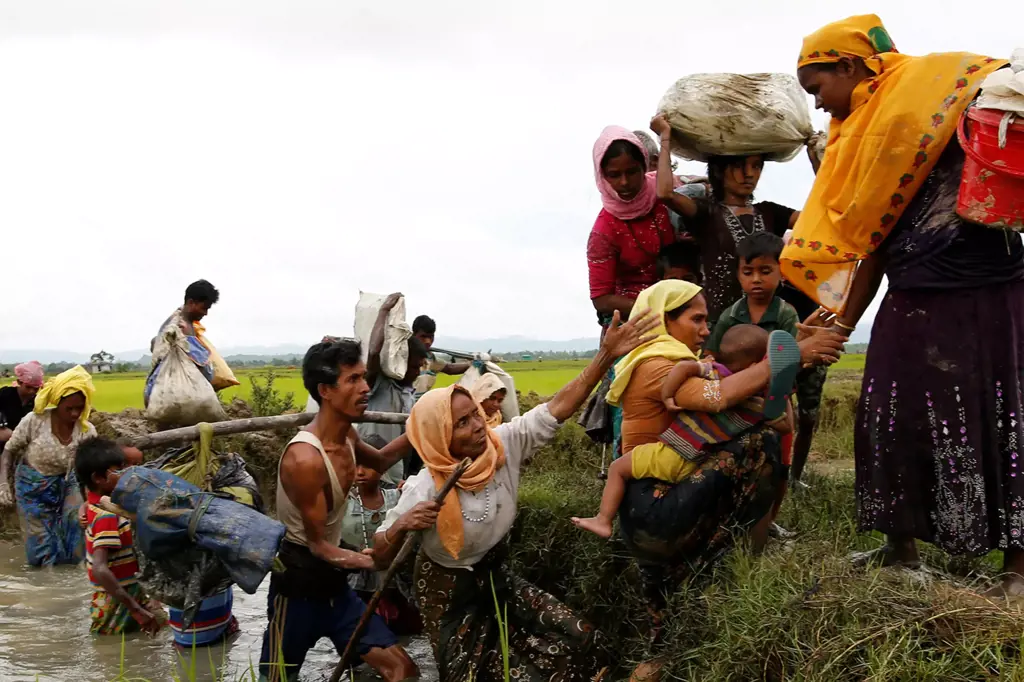
The Rohingya people, an ethnic minority group from Myanmar, have faced widespread persecution and discrimination for decades. Among the many challenges they face, restrictions on their freedom of movement and travel have become a major issue. These travel restrictions, imposed by the government of Myanmar, have raised concerns about potential legal discrimination against the Rohingya.
The Rohingya have been denied citizenship in Myanmar, despite having lived in the country for generations. This lack of formal recognition as citizens has severely restricted their rights and opportunities, including their ability to travel freely within Myanmar and abroad. Many Rohingya have been confined to internally displaced persons (IDP) camps, which are essentially open-air prisons, with limited access to basic services and opportunities for employment.
The travel restrictions imposed on the Rohingya are often justified by the government on grounds of national security and border control. However, critics argue that these justifications are thinly veiled attempts to further marginalize and discriminate against the Rohingya community. By denying them the ability to travel freely, the government effectively restricts their access to education, healthcare, and job opportunities, perpetuating their marginalization and poverty.
These travel restrictions also have a profound impact on the Rohingya's ability to escape persecution and seek safety elsewhere. Many Rohingya have attempted dangerous and risky journeys to neighboring countries, such as Bangladesh and Malaysia, in search of safety and a better life. However, their options are limited, and they often fall victim to human trafficking or exploitation along the way.
The international community has been vocal in condemning these travel restrictions as a form of legal discrimination against the Rohingya. Human rights organizations and advocacy groups have called on the government of Myanmar to lift these restrictions and grant the Rohingya their basic human rights, including the freedom to travel and seek asylum.
In response to international pressure, there have been some limited efforts by the Myanmar government to ease travel restrictions for the Rohingya. In 2018, the government issued national verification cards (NVCs) to some Rohingya, which they were told would enable them to travel domestically. However, these cards are widely seen as inadequate and insufficient, as they still do not grant Rohingya full citizenship rights or the ability to travel internationally.
The issue of travel restrictions and legal discrimination against the Rohingya is complex and deeply rooted in the history and politics of Myanmar. It requires a comprehensive and multifaceted approach from both the government of Myanmar and the international community to address the underlying causes and find a durable solution.
In the meantime, the Rohingya continue to suffer the consequences of these discriminatory travel restrictions. Their hopes for a better future, freedom of movement, and an end to persecution remain distant dreams, as they navigate a world that treats them as second-class citizens. Urgent action is needed to ensure that the rights and dignity of the Rohingya are respected and protected.
Update on Cape Verde Travel Restrictions: What You Need to Know
You may want to see also

How do these travel restrictions impact the daily lives and freedoms of the Rohingya community?
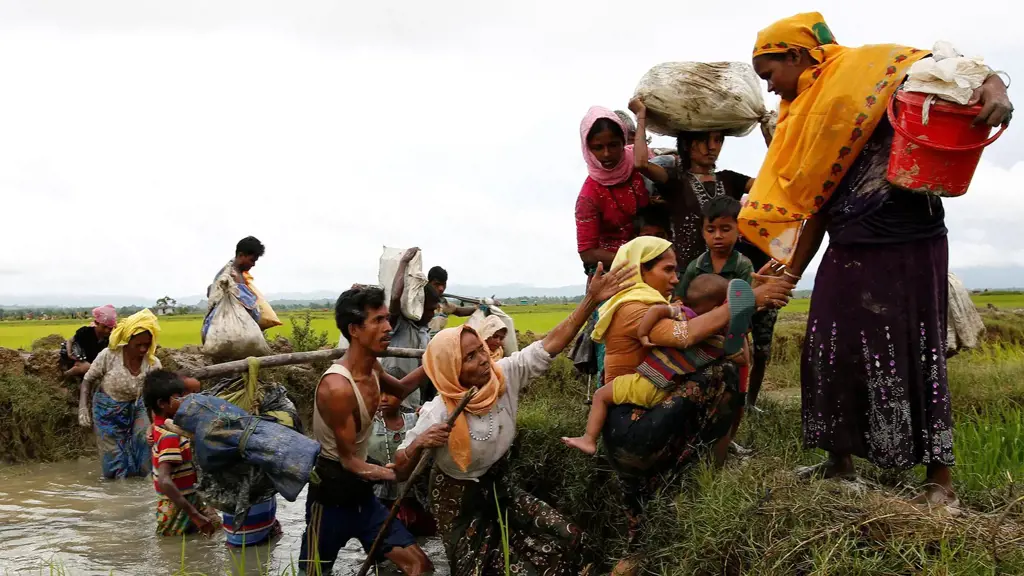
Travel restrictions have long been a tool used to control and marginalize populations. In the case of the Rohingya community in Myanmar, these restrictions have had a devastating impact on their daily lives and freedoms.
The Rohingya people have faced persecution and discrimination for decades in Myanmar. The government does not recognize them as citizens, effectively rendering them stateless. This lack of citizenship rights has severe consequences, one of which is the imposed travel restrictions.
These restrictions limit the ability of the Rohingya community to move freely within Myanmar and beyond its borders. They have been confined to camps and villages, where their movement is strictly controlled. This has had a significant impact on their access to basic services such as healthcare, education, and employment opportunities.
In terms of healthcare, the travel restrictions have hindered the Rohingya community's ability to access essential medical services. They are often unable to travel to nearby hospitals or clinics, resulting in a lack of proper medical care. This has led to higher mortality rates among the Rohingya, especially when it comes to preventable and treatable diseases.
Education is another area that has been severely affected by the travel restrictions. Many Rohingya children are unable to attend school, as they are unable to travel to the nearest schools outside their restricted areas. This lack of education limits their future prospects and perpetuates the cycle of poverty.
The travel restrictions also impact the economic opportunities available to the Rohingya community. They are often restricted to working in low-paying jobs within their designated areas, with limited opportunities for advancement or entrepreneurship. This further marginalizes the community and exacerbates their economic vulnerabilities.
Furthermore, the freedom of movement is a basic human right that is denied to the Rohingya people due to these restrictions. They are unable to visit family members in other areas, attend social events, or simply go about their daily lives as they see fit. This lack of freedom and autonomy contributes to their overall sense of powerlessness and oppression.
In conclusion, the travel restrictions imposed on the Rohingya community in Myanmar have had severe and wide-ranging impacts on their daily lives and freedoms. From limited access to healthcare and education to restricted economic opportunities and a lack of freedom of movement, these restrictions perpetuate their marginalization and contribute to their overall vulnerability. Urgent action is needed to address these restrictions and ensure that the Rohingya community can enjoy their basic rights and freedoms like any other population.
Countries that Restrict DUI Travel: Know Before You Go
You may want to see also

Has the international community taken any action against these travel restrictions?
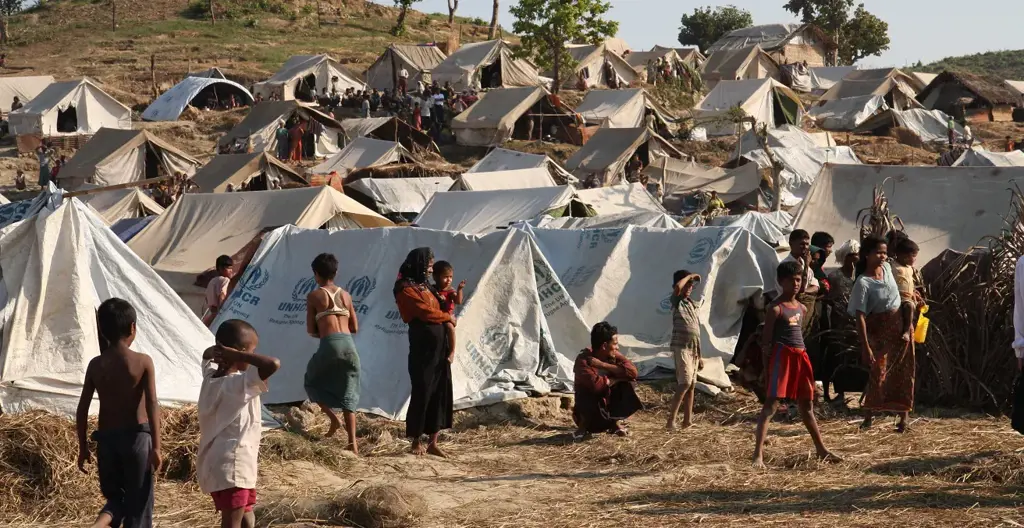
Travel restrictions have been implemented by countries all over the world in an effort to control the spread of COVID-19. These restrictions include border closures, quarantine requirements, and bans on non-essential travel. While these measures are necessary to protect public health, they have also had a significant impact on international travel and global connectivity.
In response to these travel restrictions, the international community has taken several actions to address the situation. One of the key actions taken by the international community is the establishment of travel corridors or travel bubbles. These are agreements between countries that allow for the resumption of travel between them, subject to specified conditions such as pre-departure testing and quarantine requirements. Travel corridors have been implemented in various regions around the world, including Europe, Asia, and the Pacific.
The International Air Transport Association (IATA), which represents airlines worldwide, has also been actively involved in advocating for the removal of travel restrictions. They have called for the implementation of standardized protocols for testing and quarantine, as well as the use of digital health passes to facilitate travel. The IATA has collaborated with international organizations such as the World Health Organization (WHO) and the International Civil Aviation Organization (ICAO) to develop these protocols and promote their adoption by governments.
In addition, diplomatic efforts have been made to address the issue of travel restrictions. The United Nations (UN) and its specialized agencies, such as the World Tourism Organization (UNWTO), have been engaging with governments to urge them to adopt a coordinated and science-based approach to travel restrictions. The UN has emphasized the importance of balancing public health objectives with the need to maintain economic and social connections between countries.
Furthermore, some countries have taken legal actions against travel restrictions. For example, the European Union (EU) has launched legal proceedings against member states that have imposed unilateral travel restrictions within the EU. The EU argues that these restrictions violate the principle of free movement of people within the Schengen Area, which is a key pillar of European integration.
Despite these actions, it is important to note that travel restrictions remain largely a sovereign decision of individual countries. Governments have the responsibility to protect the health and safety of their citizens, and travel restrictions are one of the tools they have at their disposal to achieve this objective. However, international collaboration and coordination are crucial to ensure the smooth resumption of travel and minimize the negative impacts of restrictions on global connectivity.
In conclusion, the international community has taken various actions to address travel restrictions, including the establishment of travel corridors, advocacy for standardized protocols, diplomatic efforts, and legal actions. While these actions have helped to mitigate the impact of travel restrictions, it is important to strike a balance between public health concerns and the need for global connectivity. The ongoing collaboration between governments, international organizations, and stakeholders will be key to achieving this goal.
Getting Acquainted with Nevis Travel Restrictions: What to Know Before You Go
You may want to see also

What possible justifications do the Myanmar government provide for the imposition of travel restrictions on the Rohingya?
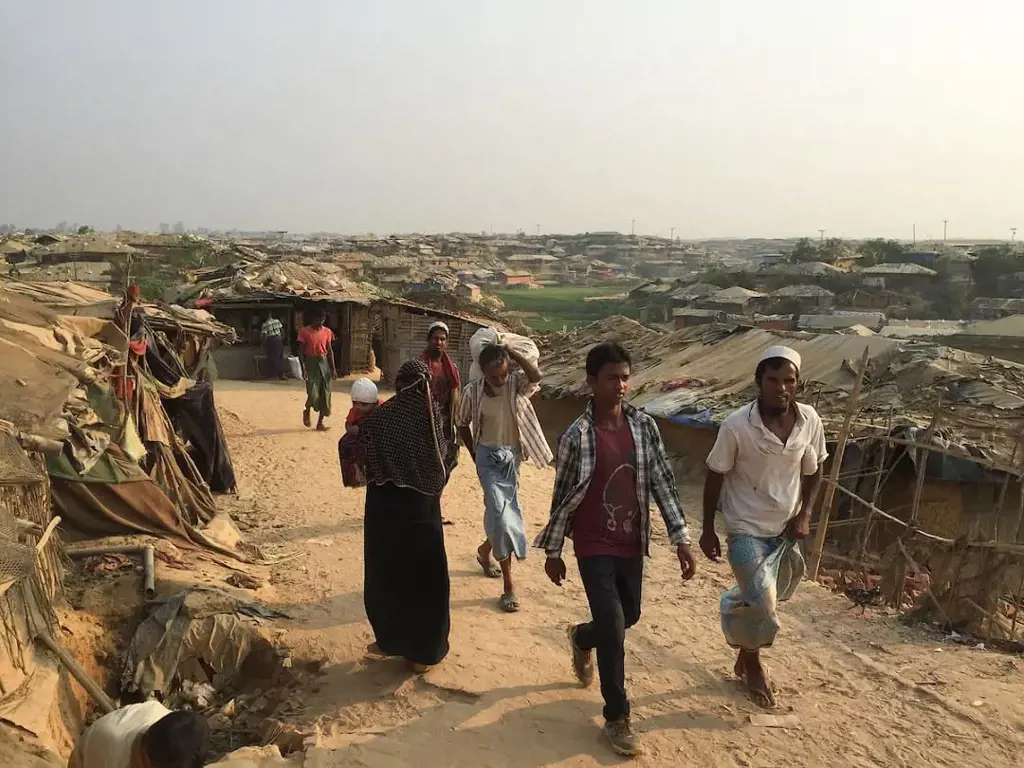
The Rohingya crisis in Myanmar has garnered international attention and condemnation due to the human rights abuses committed against the Rohingya Muslim minority. One of the key aspects of the crisis is the imposition of travel restrictions on the Rohingya population. The Myanmar government has provided various justifications for these restrictions, although they have been widely criticized by the international community.
One of the main justifications given by the Myanmar government is security concerns. They argue that the travel restrictions are necessary to prevent potential violence and maintain stability in the region. The government claims that the Rohingya are a security threat, often linking them to extremist groups and terrorism. They argue that the restrictions are in place to prevent the movement of individuals who could potentially pose a threat to national security.
Another justification put forward by the government is the preservation of social order. They argue that the restrictions are necessary to prevent tensions between different ethnic and religious communities in Myanmar. The government claims that allowing the Rohingya to freely travel could lead to clashes with the Buddhist majority in the country. They argue that the restrictions serve to maintain peace and harmony among the various communities.
The government also claims that the travel restrictions are necessary to prevent illegal migration and maintain control over the population. They argue that the Rohingya are not recognized citizens of Myanmar and therefore should not be allowed to freely travel within the country. The government asserts that the restrictions are in line with immigration policies and procedures, and that they are justified in order to regulate population movements and protect national interests.
However, these justifications have been strongly criticized by human rights organizations and the international community. Critics argue that the security concerns raised by the government are disproportionate to the measures taken. The restrictions have been described as a form of collective punishment, as they target an entire population based on the actions of a few individuals. Many argue that the restrictions on the Rohingya are discriminatory and in violation of their basic human rights.
Furthermore, the argument of preserving social order has been criticized for perpetuating discrimination and segregation. By restricting the movement of the Rohingya, the government is effectively isolating them and preventing integration with the rest of the population. Critics argue that this further exacerbates tensions and perpetuates a cycle of violence and discrimination.
The argument of preventing illegal migration has also been widely condemned. Human rights organizations argue that the Rohingya are fleeing persecution and violence in Myanmar, and as such, should be given protection and assistance, rather than being prevented from seeking safety. The travel restrictions are seen as a form of forced confinement, denying the Rohingya their basic rights and freedom of movement.
In conclusion, while the Myanmar government provides various justifications for the imposition of travel restrictions on the Rohingya, these justifications have been widely criticized by the international community. The restrictions are seen as a violation of human rights and a form of discrimination. Efforts should be made to address the root causes of the crisis, promote reconciliation, and ensure the protection and rights of the Rohingya population.
Dissecting Denmark's Travel Restrictions: What You Need to Know
You may want to see also
Frequently asked questions
What are the travel restrictions imposed on the Rohingya population?
2.
The Myanmar government argues that these travel restrictions are necessary for national security reasons and to maintain stability. However, international human rights organizations argue that these restrictions are a form of legalized discrimination against the Rohingya population, designed to further marginalize and isolate them.
3.
The travel restrictions have a profound impact on the daily lives of the Rohingya population. They are effectively trapped within their villages and displacement camps, unable to access education, healthcare, and job opportunities outside of their confined areas. This has led to a dire situation where the Rohingya are effectively segregated and denied basic human rights.
4.
Yes, the international community, including the United Nations and various human rights organizations, has condemned these travel restrictions as a form of discrimination. They argue that the Rohingya should be afforded the same rights and freedoms as any other citizen, including the ability to travel freely within and outside of the country.
5.
Efforts are being made by international organizations and governments to put pressure on the Myanmar government to lift these travel restrictions and grant the Rohingya population equal rights and citizenship. However, progress has been slow, and meaningful change has yet to be achieved. Continued advocacy and awareness are crucial in pushing for an end to these discriminatory travel restrictions.


